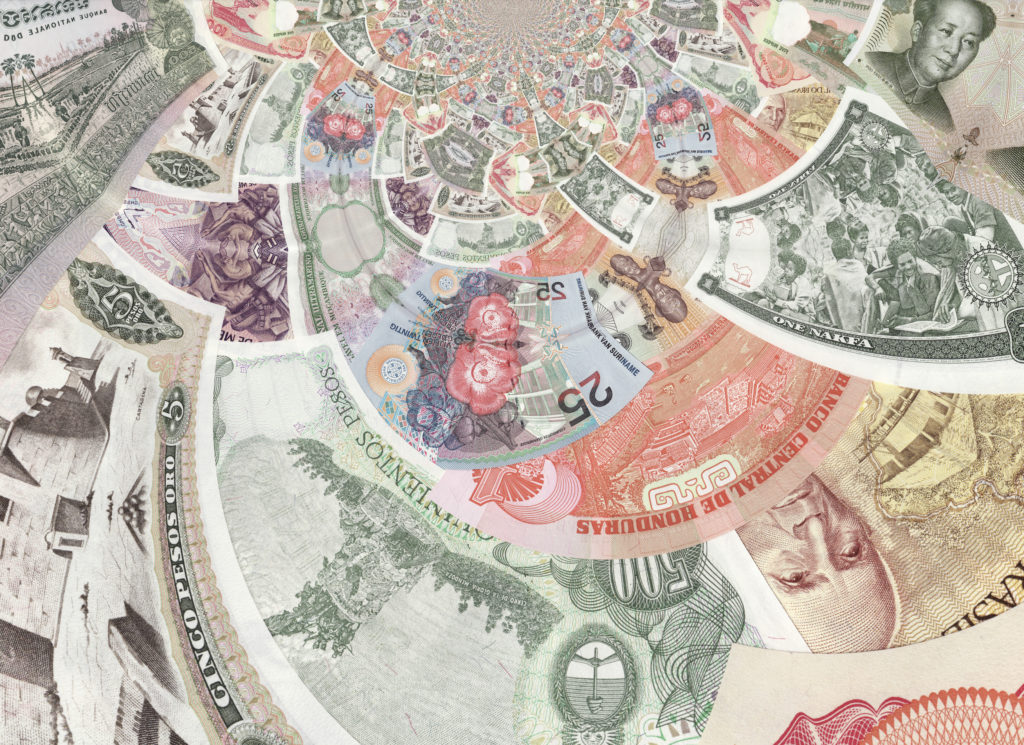
There have been numerous announcements of central banks starting to explore the idea of introducing Central Bank Digital Currencies (CBDC).
From e-naira, a CBDC issued by the central bank of Nigeria, to the digital yuan in China to the European central bank exploring the idea of the digital euro. In fact, according to the Bank For International Settlements research, 90% out of 81 central banks surveyed have been in some shape or form investigating the idea of introducing a central bank digital currency.
According to the same survey, an increasing number of countries are adjusting the legal authority of central banks giving them provisions that allow for a launch of digital currencies.
These central banks argue that CBDCs will help with financial inclusion by providing more access to financial services for underbanked and unbanked, they would lead to a significant reduction in fraud and money laundering, and they would improve efficiency and ultimately allow for a better and more efficient monetary policy through more control over the money supply.
I just spent 1000 Naira from my Naira @Mastercard by @gtbank to buy 10,000 Naira cash from a @palmpay_ng POS. The Nigerian government is intentionally forcing its citizens into a cashless Keynesian economy while they position their surveillance CBDC – eNaria as final destination. pic.twitter.com/HkjVhYtqKg
— Oluwasegun Kosemani (@MrlamilamiKosch) February 2, 2023
CBDCs are often thought of in terms of the government’s response to crypto, the way that central banks are trying to get with the times and digitize money. However, except for utilizing similar technologies, they are fundamentally different from Bitcoin and many other cryptocurrencies.
The most significant difference between CBDCs and Bitcoin lies in the level of centralization and control. While Bitcoin is a fully decentralized currency operating on a decentralized ledger that not one person or organization can control, CBDCs are issued and fully controlled by the central bank that controls its supply, issuances, and use.
Bitcoin was created as a decentralized alternative to traditional fiat currencies and as a response to the monetary policies of central banks creating uncertainty and being responsible for the devaluation of money with ripple effects throughout the economy. CBDCs would equip governments with tools providing fast and easy total control over monetary policy to the extent of targeting businesses, organizations, and individuals.
The level of control that a government would have over every transaction and the ability to apply transaction censorship over anyone would give leaders a level of control unprecedented in history, a tool that any totalitarian leader from a few decades ago could have only dreamed of.
One could argue that most money already is digital, an endless collection of 0s and 1s. However, the crucial distinction is that no single database can track and oversee every transaction that exists. There are a number of laws and regulations in place that allow law enforcement to request access to records of interest where courts are required to give approval for such actions.
Forgoing these checks and balances currently in place and allowing one-click access to accounts of citizens would give not only an unprecedented power in terms of privacy violations but also an opportunity to monitor or deactivate undesirable accounts based on any perceived or real violation.
Taking away all of one’s ability to sustain themselves by locking their accounts is equivalent to jailing them. Giving officials the option to freeze or ban certain accounts without due process could seriously damage the principles of rule of law on which our society rests.
The potential for any elected or appointed officials to affect a citizen’s livelihood in such a way could lead to serious consequences, such as endangering the ability of citizens to use their right to free expression in fear of their lives being ruined in a single click. It is not hard to imagine many possible ways that any malicious actor could use this centralized power. Many other unintended consequences could be possible and some could create immense levels of social distrust.
Then there is privacy. Transactions made using CBDCs may be recorded on a public blockchain, making it possible for others to track and analyze financial data. Having citizens using a tool that could fundamentally affect their privacy on an unimaginable scale thus far in human history would be a grand violation of rights to privacy and would, without a doubt, lead to additional problems.
You thought your browsing history could be turned against you? Anyone having access to any monetary transaction you have made would definitely not be fun either and it is easy to imagine dozens of ways that bad actors could exploit access to that kind of information.
Another often overlooked potential consequence of introducing Central Bank Digital Currency is the digital monetary competition. If we see a rise in digital currencies issued by central banks, it is likely that they will enter a race with other country issued currencies as well as private or decentralized ones, such as Bitcoin. Having this sort of competition would potentially open up unknowing citizens to currency fluctuations which cannot be foreseen and create even larger instability with some national currencies. The ways this could affect purchasing power and lead to potential civil unrest is evident.
This is only a few ways that adoption of Central Bank Digital Currencies could affect life as we know it. It is easy to see how an extremely centralized, highly controlled and surveilled currency would be an end of many of the freedoms that our societies enjoy and shows why in contrast, Bitcoin, a highly decentralized, secure and censorship resistant currency is immensely important and represents one of the most potent tools humanity has today.
Aleksandar Kokotović is the crypto fellow at the Consumer Choice Center.


